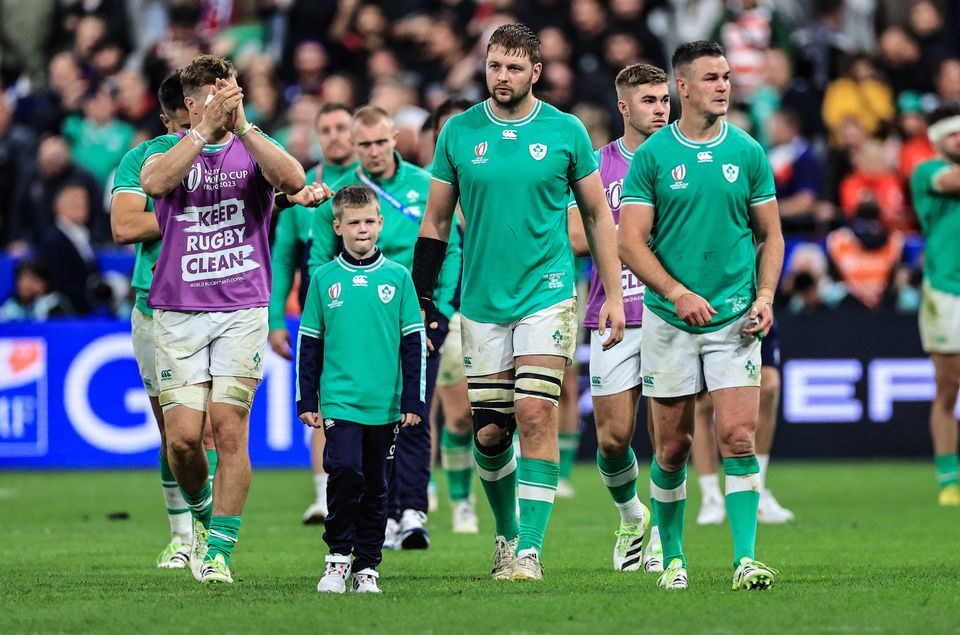IRFU chief executive Kevin Potts says the funding model for the Rugby World Cup isn’t working after the union reported an €18.4m deficit.
That figure is hugely influenced by Ireland’s participation in France last year, when the union spent €12.1m on Andy Farrell’s team, who exited the tournament at the quarter-final.
The union’s income was down from €92m to €79m because there were no Autumn Nations Series games, but they retain a whopping €69m in cash and investments and €87m in assets.
Although Potts and the union’s chief financial officer Thelma O’Driscoll warned of a challenging operating environment with regards to a shrinking broadcast market and higher costs, the union vowed not to cut its performance programmes as it increases its investment in the women’s game beyond the current €8.3m.
“We’re not cutting our programmes,” Potts said.
“We are continuing to do all the activities we normally do over the course of the four years. So we have to manage that impact across four years otherwise every four years we’d have to be pulling programmes and then restarting them the following year. That’s why the loss occurs.
“You could easily challenge us, ‘why don’t you just cut your costs in that year?’ but we won’t do that.
“We’ve got to keep our schools, clubs, and professional game going so that’s the impact.
“This year’s Autumn Nations Series games have generated significant funds in order to compensate for that.”
“It (the World Cup) is a value transfer from the unions to the tournament.
“We get some funding over the following years out of World Rugby but it doesn’t match what it costs us. It’s also being used to develop the game globally.
“It’s not working and World Rugby are aware that we and other unions are challenged by this and we need to look, is there a better way.
“We certainly can’t continue to have World Cups every four years that are having such a major impact in that year on our finances.
“But World Rugby are aware of that, to be fair, and that’s one of the reasons they’ve been working with us and we will hopefully, collaboratively, find some solutions.”
Ireland paid the price on and off the pitch at last year’s Rugby World Cup
Although the headline figure is a big one, the IRFU is in a far better position than many rival unions.
And Potts is acutely aware of the challenges that rugby is facing on a wider level.
“There’s a real challenge in our game globally at the moment. All of the top High Performance Unions are challenged with rising costs but the revenues are not increasing at the same rate,” Potts said.
“The next round of TV broadcasting cycle commences in 2026 and the Nations Cup is probably the next big initiative to try and generate more fans and more revenues. It’s a challenge for all unions.
“World Rugby initiated a working group a number of weeks ago which we welcome, where the top 12 unions, the CEOs, chairs and treasurers are sitting with World Rugby and, are there things we can do together to help us with costs or help us with revenue generation and there a number of initiatives that are about to kick off in the new year.
“So collaboratively, we need to work together in the game to generate more revenue and I guess if we don’t, we will have to review our programmes while at all times protect the three priority areas which is our men’s national teams, given they generate 80 per cent of our revenue, and the pathways that feed them including our provinces; the need to accelerate our women’s programme and, of course, building our clubs.
“Those three priorities can’t be compromised so, yes, like any business we can only afford to spend what we have or what we receive and it’s a challenge for the sport.”
